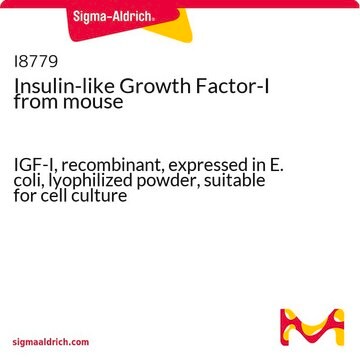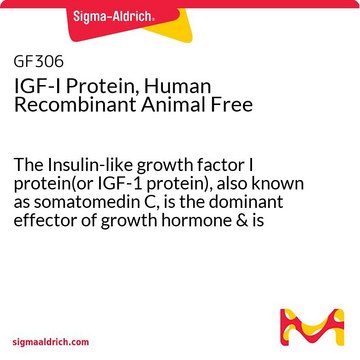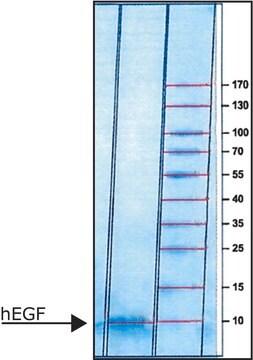I8904
Insulin-like Growth Factor-II from mouse
>97% (SDS-PAGE), recombinant, expressed in E. coli, lyophilized powder
Synonyme(s) :
IGF-II
About This Item
Produits recommandés
Nom du produit
Insulin-like Growth Factor-II from mouse, IGF-II, recombinant, expressed in E. coli, lyophilized powder
Source biologique
mouse
Niveau de qualité
Produit recombinant
expressed in E. coli
Essai
>97% (SDS-PAGE)
Forme
lyophilized powder
Qualité
endotoxin tested
Poids mol.
~7.4 kDa
Conditionnement
pkg of 5X50 μg
pkg of 50 μg
Impuretés
<1.0EUper1mg (LAL test)
Numéro d'accès UniProt
Température de stockage
−20°C
Informations sur le gène
mouse ... IGF2(16002) , Igf2(16002)
Description générale
Actions biochimiques/physiologiques
Forme physique
Remarque sur l'analyse
Produit(s) apparenté(s)
Code de la classe de stockage
11 - Combustible Solids
Classe de danger pour l'eau (WGK)
WGK 3
Point d'éclair (°F)
Not applicable
Point d'éclair (°C)
Not applicable
Équipement de protection individuelle
Eyeshields, Gloves, type N95 (US)
Faites votre choix parmi les versions les plus récentes :
Déjà en possession de ce produit ?
Retrouvez la documentation relative aux produits que vous avez récemment achetés dans la Bibliothèque de documents.
Articles
Insulin-like Growth Factors (IGF)
Notre équipe de scientifiques dispose d'une expérience dans tous les secteurs de la recherche, notamment en sciences de la vie, science des matériaux, synthèse chimique, chromatographie, analyse et dans de nombreux autres domaines..
Contacter notre Service technique







